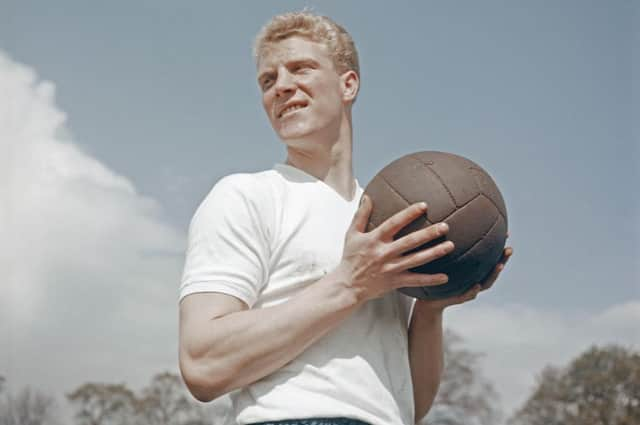Yorkshireman Ron Flowers, England's never-miss penalty-taker who was a cold away from the 1966 World Cup final, has died


In some respects he had a lot in common with Jimmy Greaves, whose contribution to English football was also recognised shamefully late in this year's honours list, and who also died in 2021.
Two of Flowers' goals were penalties at the 1962 World Cup during a purple patch of five goals in seven games, and he captained the side three times in 1964. Between 1958 and 1963 he played in 40 consecutive games, something only Billy Wright has bettered for the Thre Lions.
Advertisement
Hide AdAdvertisement
Hide AdIn all he took six penalties for England and scored them all.
Flowers partnered Bobby Moore in a pre-1966 World Cup friendly against Norway which Greaves scored four times in. it would prove to be his last cap, but his 50th could have come in the World Cup final.
When Jack Charlton, Moore's partner throughout the tournament, was suffering with a cold on the eve of the West Germany game, manager Alf Ramsey told Flowers - the oldest member of the squad - to stand by.
Quite how likely it was that "Big Jack" would miss a World Cup final with a cold is open to debate, but it shows how fickle footballing fate can be.
Advertisement
Hide AdAdvertisement
Hide AdIn 1966, those who did not play in the final did not receive a medal. That was eventually put right by FIFA in 2009, and in January Flowers and Greaves received MBEs, the last members of the squad honoured.
So instead, a man from a family steeped in Doncaster Rovers will probably be remembered more as a Wolverhampton Wanderers legend, having won three league titles and an FA Cup in 515 appearances for the club.
Born in New Edlington, Flowers had started as a schoolboy with Doncaster, the club his younger brother John and uncle George both made over 100 appearances for. His father was a miner who also played as a semi-professionally for them and insisted his son enroll as an apprentice at Doncaster rail sheds rather than put all his eggs in the Rovers basket.
When his local club released him, Flowers was picked up by Wolves' nursery team, Wath Wanderers. He graduated to Molineux within a year, making a goalscoring first-team debut in 1952, when he was also serving in the Royal Air Force. In all he scored 37 goals for Wolves, initially more of a wing-half before dropping into the deeper centre-half role he nearly fulfilled in July 1966.
Advertisement
Hide AdAdvertisement
Hide AdHe made his international debut as a 20-year-old as an early substitute for Wilf McGuinness in Paris in 1955 and had to wait three years for his next cap but became an immovable object when he did.
It was at Hillsborough that he became the first Englishman to score a goal in the European Championships, in the first-round qualifier against France in 1962. That was a penalty too.
Flowers ended his career with Northampton Town, having a brief spell as player-manager, and Telford and ran a sports shop in the Midlands after retiring until handing it over to his sons, who manage it today.
Comment Guidelines
National World encourages reader discussion on our stories. User feedback, insights and back-and-forth exchanges add a rich layer of context to reporting. Please review our Community Guidelines before commenting.
